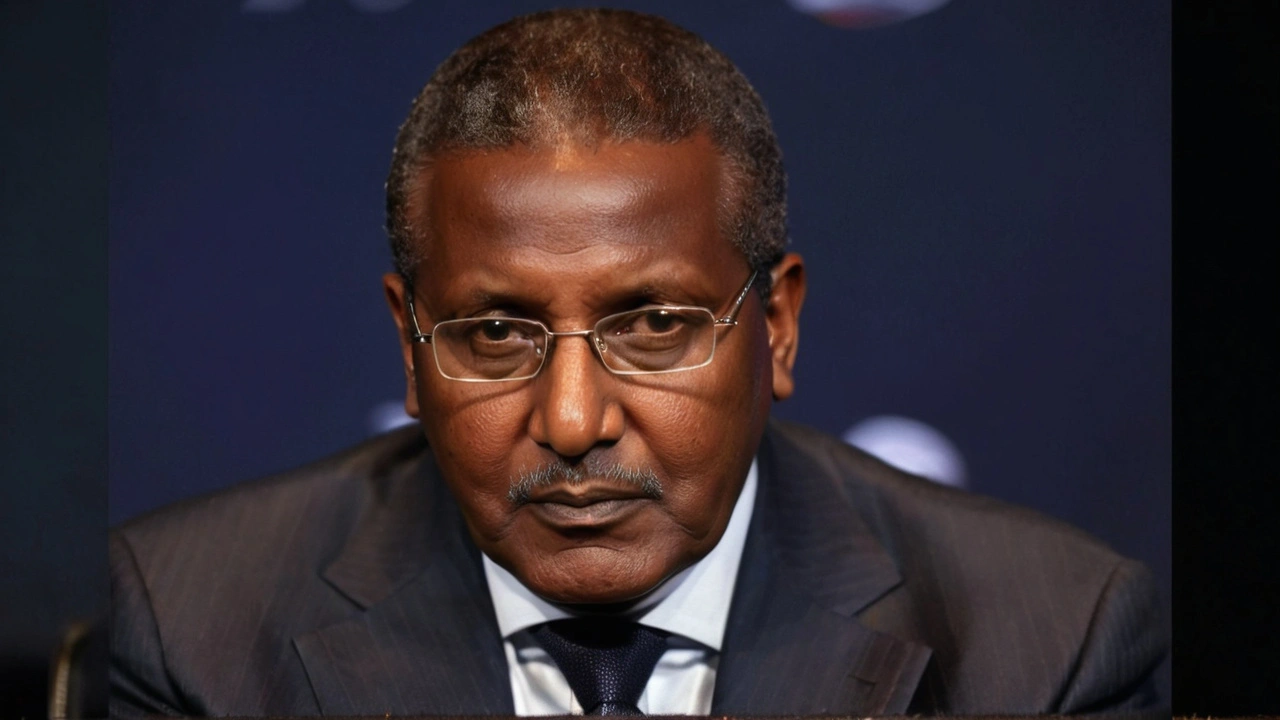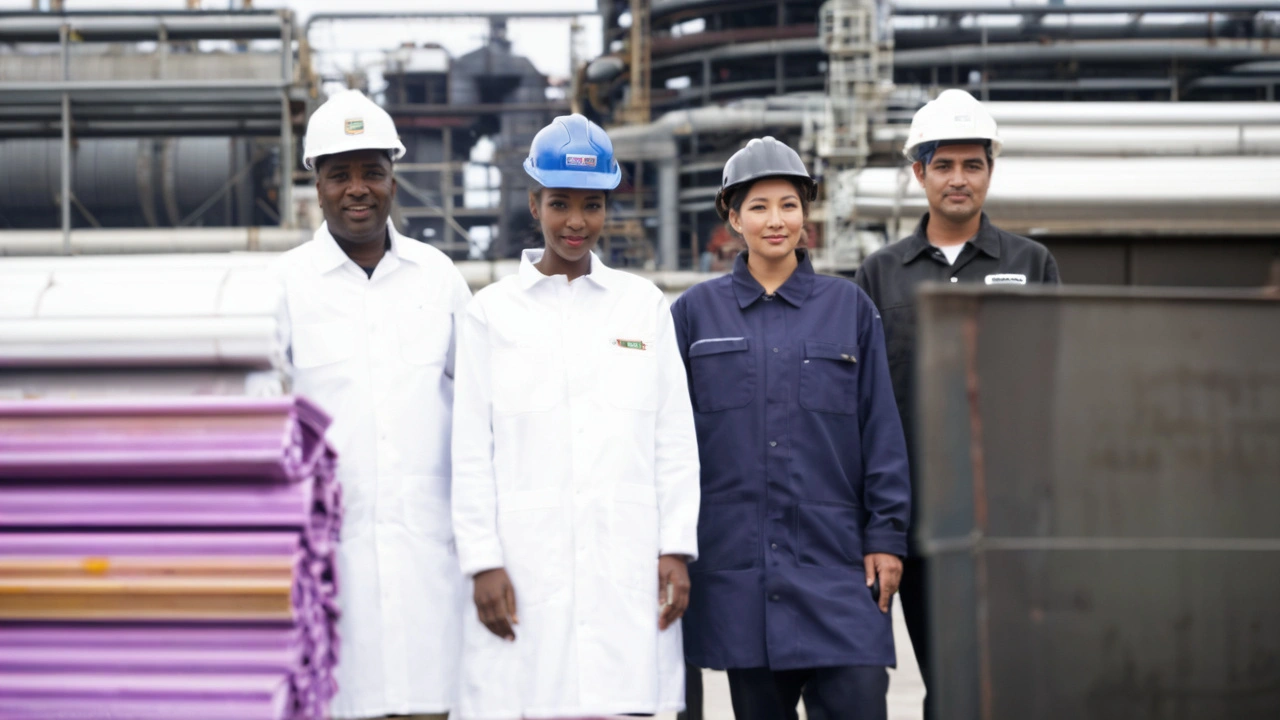Aliko Dangote Cancels Steel Plant Plans Amid Monopoly Allegations
Aliko Dangote, known as the wealthiest man in Africa and the President of the Dangote Group, has cancelled significant investment plans in the Nigerian steel industry. This decision follows on the heels of serious accusations from the Nigerian government, alleging that the Dangote Group was engaging in monopolistic practices. According to sources close to the matter, the board of Dangote Group, after careful consideration, decided to halt the project to mitigate any perceptions or accusations of monopolistic behavior.
The Allegations and Response
The Nigerian government recently levied accusations against Dangote Group, suggesting that the conglomerate was trying to monopolize the country's steel industry. In response, Dangote firmly refuted these claims, stating categorically that his company has no intentions of dominating the steel sector or any other sector in the Nigerian economy. He emphasized the group's commitment to fair competition and above-board business practices.
Speaking at a recent press conference, Dangote expressed his disappointment and frustration at the allegations. He stressed the importance of fostering a healthy business ecosystem in Nigeria where multiple players could thrive. According to Dangote, the accusations hurt not only the company's reputation but also its potential to create jobs and contribute to the country's overall economic development.
Implications of Halting the Project
The decision to scrap the steel plant investment comes with significant implications. For one, the ambitious project was expected to create numerous jobs and stimulate economic growth in various regions. The halting of this investment is likely to leave a dent in the economic plans for the region, disappointing many who were looking forward to the potential economic benefits.
Moreover, this move sends a strong message to other investors and businesses operating within Nigeria. It highlights the caution that companies might exercise in the current climate, given the potential for accusations and legal hurdles. This atmosphere of uncertainty could potentially stifle the entrepreneurial spirit that the country desperately needs for growth and development.

The Broader Context of Nigeria's Business Environment
Nigeria, as one of Africa's largest economies, has been working hard to improve its business environment and attract foreign and local investments. However, the dynamics of monopolistic accusations and the regulatory environment can sometimes present challenges. The situation with Dangote Group is indicative of broader issues within the Nigerian market and its regulatory framework.
On the one hand, the government has a duty to ensure that no single entity can unfairly dominate an industry, as this could stifle competition and innovation. On the other hand, it is crucial for regulators to create a supportive environment for businesses to flourish, avoiding any actions that might scare away potential investors.
Dangote's decision to halt the investment in the steel industry could prompt a re-evaluation of how business regulations are enforced and how accusations such as these are handled. It brings to light the delicate balance between regulation and support, highlighting the need for a more transparent and fair legal framework.
Dangote's Legacy and Future Plans
Despite the setback, Aliko Dangote remains a towering figure in the African business landscape. His impact on various sectors, including cement, sugar, and now more controversially, steel, is unquestionable. The Dangote Group continues to be a cornerstone of the Nigerian economy, providing employment and contributing to the country's GDP.
Looking forward, it is likely that Dangote will continue to explore new avenues and investments, albeit with a more cautious approach given the current situation. The broader lesson for other businesses is clear: while ambition and growth are vital, they must be balanced with keen awareness of the regulatory landscape and public perception.
Conclusion
The recent developments regarding Aliko Dangote's proposed steel plant investment underline the complexities of navigating a burgeoning economy like Nigeria's. The accusations of monopolistic practices have far-reaching consequences beyond just the halting of a single project. They impact investor confidence, job creation, and economic growth.
As Nigeria continues to evolve and develop, it will be crucial for both businesses and regulators to find a harmonious balance that encourages growth while ensuring fair competition. The Dangote Group's experience underscores the challenges ahead and highlights the need for clear, fair, and supportive regulatory practices to foster long-term economic prosperity.


Richard Klock-Begley
July 24, 2024 AT 19:45Nadine Taylor
July 26, 2024 AT 05:38jessica doorley
July 26, 2024 AT 05:50Christa Kleynhans
July 27, 2024 AT 06:13Kevin Marshall
July 27, 2024 AT 17:46Eve Armstrong
July 29, 2024 AT 13:40Lauren Eve Timmington
July 31, 2024 AT 03:01Shannon Carless
July 31, 2024 AT 15:48JIM DIMITRIS
August 1, 2024 AT 12:33Wendy Cuninghame
August 3, 2024 AT 07:15Samba Alassane Thiam
August 3, 2024 AT 11:41Patrick Scheuerer
August 5, 2024 AT 06:42Angie Ponce
August 6, 2024 AT 02:44Andrew Malick
August 7, 2024 AT 07:53will haley
August 8, 2024 AT 22:30Laura Hordern
August 9, 2024 AT 04:25Brittany Vacca
August 9, 2024 AT 15:29Lucille Nowakoski
August 11, 2024 AT 01:20